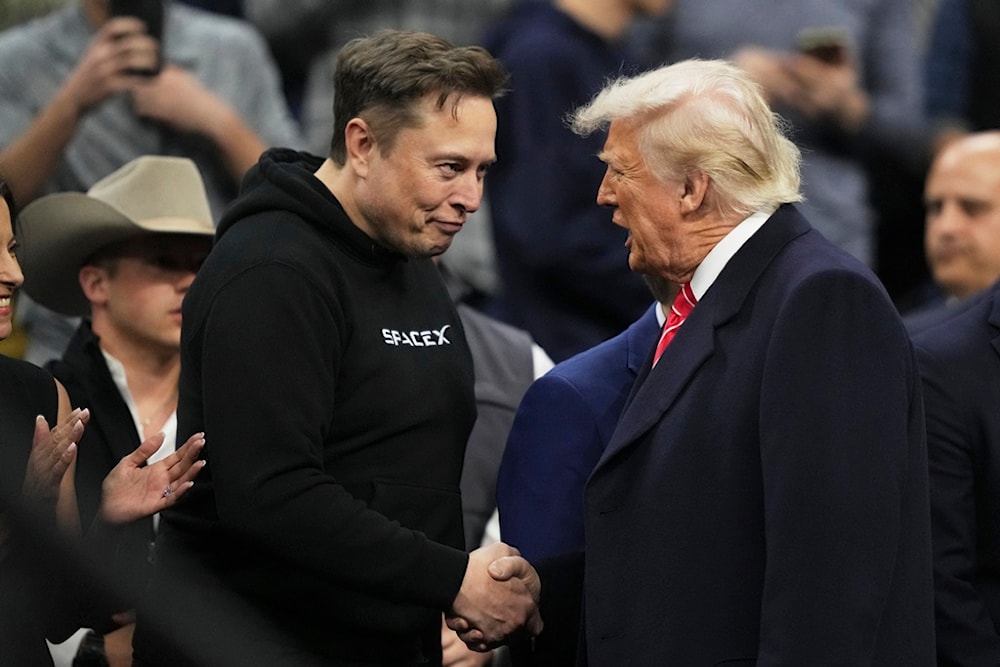Musk wants to reallocate NASA resources to Mars voyages, report says
US billionaire and government official Elon Musk wants to reallocate NASA resources to his pursuit of colonizing Mars.
-

Elon Musk, left, shakes hands with President Donald Trump at the finals for the NCAA wrestling championship, Saturday, March 22, 2025, in Philadelphia (AP)
Billionaire and SpaceX CEO Elon Musk is reportedly working to revise NASA’s programs and budget to prioritize a human mission to Mars, according to a report by The Wall Street Journal, citing sources.
The report claims that Musk is aiming to redistribute federal spending, modify NASA’s projects, and appoint allies who will support his vision of sending humans to the Red Planet.
Citing sources within SpaceX, the publication suggests that Musk has sought to influence NASA’s strategic direction in favor of Mars exploration.
According to insiders, Musk has also attempted to gain the backing of US President Donald Trump, arguing that facilitating a mission to Mars would secure Trump’s legacy in history.
These ambitions could significantly impact SpaceX, which is already one of NASA’s largest contractors and a dominant force in space technology, the report noted.
Mars mission timeline
Musk had announced plans to send a spacecraft carrying a humanoid robot, Optimus, to Mars by late 2026. He also estimated that a human could first set foot on Mars within five to seven years.
“Starship departs for Mars at the end of next year, carrying Optimus. If those landings go well, then human landings may start as soon as 2029, although 2031 is more likely,” Musk posted on his X social network.
In April 2024, Musk stated that colonizing Mars would require at least one million people and several million tons of cargo, which he believes could be transported to the Red Planet within the next 20 years.
He emphasized that the colonization effort would rely on SpaceX’s latest rocket model, Starship 3, which is currently under development.
Using position to get deals?
According to a report by The New York Times, current and former officials worry that Musk's proximity to power may give his company an unfair advantage.
SpaceX has reportedly taken steps to secure new support from federal agencies, including submitting multiple requests to the Federal Aviation Administration (FAA) for expanded launch capabilities.
These include proposals to build additional rocket launch sites and to increase launch frequency from government-owned spaceports in Florida and California. The FAA is said to be moving toward approving a request that would double the number of Falcon 9 rocket launches from Florida to 120 annually.
Musk's involvement in federal policymaking has led some media outlets to refer to him as a "shadow president". He currently holds a key advisory position in the Department of Government Efficiency (DOGE), a consultative body aimed at reforming federal operations and reducing waste.

 3 Min Read
3 Min Read








